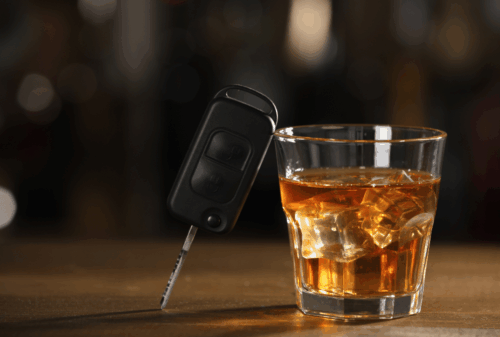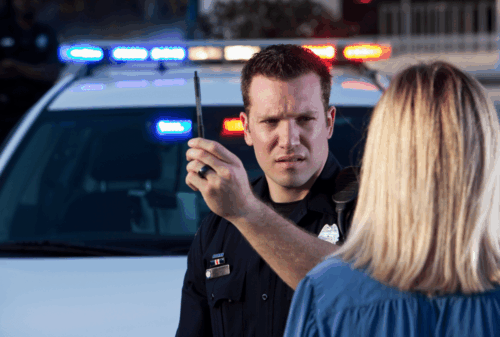Getting arrested and charged with Driving Under the Influence (DUI) in Cocoa Beach, Florida, is a serious and often overwhelming situation you never want to find yourself in. From the anxiety of seeing police lights flashing behind you to the uncertainty and consequences that may follow an arrest, being pulled over for DUI sets off a series of events that can severely affect every aspect of your life.
A conviction in Florida carries serious penalties that may include hefty fines running into thousands of dollars, suspension or revocation of your driver’s license, possible jail time, and a permanent criminal record. These legal penalties often ripple into your personal and professional life, affecting your employment opportunities, insurance premiums, and how others perceive you.
However, it’s crucial to recognize that a DUI charge is not the same as a conviction. With the support of an experienced Cocoa Beach DUI lawyer, you have the best chance to protect your rights and defend yourself against the charges.
Legal experts can uncover weaknesses in the prosecution’s case, challenge testing methods, negotiate reduced penalties, or in some instances, get the charges dropped entirely. Understanding the nuances of Florida’s DUI laws and acting swiftly is crucial to securing the best possible outcome in your case.
If you’re facing a DUI in Brevard County, you need a legal team that knows both Florida DUI law and how local courts handle these cases. The Cocoa Beach criminal defense lawyers at DeGraff Hicks Law Group has years of experience defending clients in Cocoa Beach and throughout Central Florida. We combine deep knowledge of the law with aggressive advocacy to protect your future.
Understanding DUI in Cocoa Beach
Florida Statute § 316.193, defines a DUI as the act of operating or being in actual physical control of a motor vehicle while your mental and physical faculties are impaired to the extent that you are incapable of safely driving. This impairment can be caused by alcohol, illegal drugs, prescription medications, or other chemical substances.
The legal blood alcohol concentration (BAC) limit for most drivers in the state is set at 0.08%, a threshold determined by scientific research as the point at which driving ability becomes significantly impaired.
However, drivers under the age of 21 are subject to a zero-tolerance BAC level of 0.02%, meaning any detectable amount can result in penalties. Commercial drivers must maintain a BAC below 0.04% due to the heightened safety risks involved.
Importantly, DUI laws apply even if the vehicle is stationary, but you are in physical control of it—a situation that can result in charges independent of actual driving.
DUI offenses in Florida are criminal violations, reflecting the gravity of impaired driving and its threat to public safety. To establish impairment, law enforcement officers conduct behavioral assessments, administer field sobriety tests, and request chemical tests such as breathalyzers, blood, or urine analyses.
Even medications prescribed by your doctor can result in impaired driving charges if they negatively affect your motor skills, judgment, or reaction time. It’s critical to avoid vehicular operation when affected by such substances.
What Counts as a DUI in Florida?
In Florida, a DUI can be established based on your blood alcohol concentration (BAC) or your level of impairment.
Key factors considered include:
- BAC of 0.08% or Higher – For most drivers, this is the legal threshold at which impairment is presumed.
- Impairment Below the BAC Limit – You can still be charged if alcohol, drugs, or controlled substances impair your ability to operate a vehicle, even if your BAC is below 0.08%.
- Zero Tolerance for Underage Drivers – For those under 21, a BAC of 0.02% or higher can result in a DUI charge.
- Refusal to Take a Chemical Test – Declining a breath, blood, or urine test triggers separate penalties under Florida’s implied consent law.
- Actual Physical Control – You can face a DUI charge even if the vehicle is not moving, as long as you are in the driver’s seat with the ability to operate it.
- Stricter BAC Standard for Commercial Drivers – For those with a commercial driver’s license (CDL), the legal BAC limit is 0.04% due to heightened safety responsibilities.
DUI Penalties in Florida
Florida has some of the toughest DUI laws in the country, with penalties that grow harsher if your BAC is high, if you’ve been convicted before, or if certain “aggravating factors” are present.
First Offense DUI
The legal consequences following a first DUI conviction in Florida are serious and multifaceted.
Generally, a first offense entails:
- Fines ranging from $500 to $1,000. The presence of aggravators like BAC ≥ 0.15% or minors in the vehicle substantially increase fines.
- Jail time up to 6 months, extendable up to 1 year under aggravating conditions.
- Suspension of your driver’s license from 6 months to 1 year.
- Mandatory enrollment in a DUI education program, which educates offenders on the dangers of impaired driving.
- At least 50 hours of community service.
- Vehicle impoundment typically for 10 days.
- Probation that can last for up to one year.
- The court may also require installation of an ignition interlock device if your BAC was severely elevated or under particular circumstances.
Moreover, a DUI offense results in a criminal conviction permanently recorded on your record, potentially impacting your employment prospects, professional licensing, and travel plans. Enlisting the help of a knowledgeable DUI lawyer near you is your path to clearing your name.
Second Offense
A repeat DUI offense within the statutory look-back period triggers significantly tougher penalties.
For a second DUI conviction within five years, penalties include:
- Fines increasing to between $1,000 and $2,000.
- Mandatory jail sentences of up to 9 months; often longer if aggravating factors apply.
- Longer license revocation periods: a minimum of 5 years.
- A required ignition interlock device installed for at least one year following license reinstatement.
- Longer vehicle impoundment periods of up to 30 days.
- Additional DUI school and expanded probation requirements.
Third Offense or More
Third or subsequent offenses within ten years escalate to felony charges. Felony DUI penalties are significantly harsher, including:
- Fines between $2,000 and $5,000.
- Jail sentences extending up to 5 years or more.
- Driver’s license revocation for at least 10 years.
- An extended period during which ignition interlock devices are mandated.
- Vehicle impoundment for a minimum of 90 days or longer in some cases.
Florida’s DUI laws are structured to severely punish habitual offenders in order to protect public safety by removing repeat impaired drivers from the roads.
What You Need to Know About A First DUI Offense
For many people, a first DUI is their first brush with the criminal justice system. You may assume that because you’ve never been in trouble before, the penalties will be light. Unfortunately, Florida law doesn’t work that way.
Even a first conviction leaves you with a criminal record that cannot be expunged and can impact your life for decades. The court may be more lenient on jail time, but you will still face license suspension, fines, DUI school, and community service.
One of the biggest surprises for first offenders is the administrative suspension from the Florida Department of Highway Safety and Motor Vehicles (DHSMV). This is separate from the court case. If you fail a breath test (BAC ≥ 0.08%), your license can be suspended for 6 months immediately. At that point, you can either challenge the suspension through a formal review hearing, or waive the hearing and enroll in a DUI Level 1 class to obtain a hardship license. Both options have important consequences, so it’s best to understand each before making a decision.
You can challenge this suspension, but you have only 10 days from the date of arrest to request a formal review hearing. Missing this deadline means losing your driving privileges, regardless of what happens in court.
Subsequent DUI Offenses
Florida takes repeat DUI offenses seriously because they suggest prior penalties failed to deter impaired driving.
- Second DUI within 5 years triggers a minimum 5-year license revocation and mandatory jail.
- Third DUI within 10 years is a felony with the potential for a prison sentence.
- Fourth DUI—regardless of when prior convictions occurred—is a felony with permanent license revocation.
For repeat offenders, judges are less likely to grant leniency. Prosecutors often push for maximum penalties, and the DMV imposes long-term or permanent driving restrictions.
Aggravated DUI
Certain conditions qualify a DUI offense as aggravated, intensifying the potential legal consequences. This is why contacting an experienced Cocoa Beach DUI lawyer is essential.
These include:
- A BAC level of 0.15% or higher, reflecting a high level of intoxication.
- Driving with a minor under 18 in the vehicle at the time of the offense.
- Causing an accident resulting in serious bodily injury or death.
- Driving while your license is suspended or revoked as a result of a previous DUI.
- Attempting to evade arrest or fleeing law enforcement officers.
Aggravated DUI offenses are treated as felonies or more serious misdemeanors, carrying heightened penalties including imprisonment. For example, if a DUI results in a fatality, charges may escalate to homicide-related felonies with maximum penalties reaching 20 years or more in prison.
What Should I Do If I’m Stopped for a Suspected DUI in Cocoa Beach, Florida?
Encountering law enforcement under suspicion of DUI is stressful, but your actions in this moment can influence your case outcome.
Here’s what you need to do:
- Remain calm and respectful. Avoid confrontational or aggressive behavior which can worsen your situation.
- Comply with requests to provide your driver’s license, registration, and proof of insurance.
- Beyond offering identification, politely decline to answer questions about your drinking or drug use without an attorney present. Remember, you still have the right to remain silent, exercise it.
- Request legal counsel immediately if you are arrested, and avoid making statements or admissions without your Cocoa Beach DUI lawyer.
- Document as much as possible about the stop—time, location, officer behavior—as this can assist your defense later.
Handling the situation thoughtfully can protect your legal rights and improve your defense prospects. Get the support of a skilled Cocoa Beach DUI lawyer today.
Can I Refuse a Breathalyzer Test in Cocoa Beach, Florida?
Florida law enforces an implied consent rule, which stipulates that by obtaining a driver’s license and operating a vehicle on public roads, you have consented to submit to chemical testing when lawfully requested by police for suspected DUI. Refusing to take the test is a violation of this rule, and it carries automatic administrative penalties.
These include:
- Automatic license suspension for one year after the first refusal, 18 months for a second or subsequent refusal.
- Potential criminal penalties under new laws effective October 2025, which treat refusals more harshly.
- The refusal can be used against you as evidence of guilt during trial.
- Additional fines and potential jail time related to refusal itself.
Given these serious consequences, it is important to carefully consider how testing decisions may impact a case. In many situations, legal strategies focus on closely examining the circumstances surrounding the test and challenging the reliability or accuracy of the results with the help of an experienced Cocoa Beach DUI lawyer.
What Are the Consequences of a DUI on My Record?
Beyond immediate penalties, a DUI conviction in Florida carries wide-ranging long-term consequences:
- Permanent criminal record: It will appear in background checks required for employment, professional licensing, housing applications, and more. Keep in mind that the record can’t be sealed or expunged.
- Insurance premium hikes: DUI convictions often lead to doubled or tripled auto insurance costs and difficulty obtaining coverage.
- Professional license impact: Governing boards for occupations like nursing, teaching, law, and real estate may discipline or revoke your license.
- Travel restrictions: Several countries deny visas or entry to travelers with DUI convictions.
- Social stigma: The personal and emotional toll includes strained relationships, community standing, and psychological stress.
The impact touches many facets of life, emphasizing why strong legal defense from an experienced DUI defense lawyer near you is critical.
How Can a DUI Defense Lawyer Help?
Securing the assistance of an experienced Cocoa Beach DUI lawyer can significantly affect the outcome of your case.
Here’s how we can help:
- Comprehensive case evaluation: Our team will scrutinize each and every detail of your case—from the legality of the stop to the accuracy of the chemical tests. This will help us to identify weak points and build a strong defense for you.
- Aggressively challenge the evidence against you: The defense will look to question police conduct, test administration, equipment calibration, and adherence to procedure.
- Negotiations: Depending on the strength of the case against you, our skilled DUI attorneys may seek to negotiate with the prosecution to reduce charges to less severe offenses or seek alternative sentencing.
- Courtroom representation: If the case proceeds to trial, our Cocoa Beach DUI lawyer will advocate vigorously—examining witnesses and presenting expert testimony.
- Guidance and support: Our Cocoa Beach DUI lawyers will help you understand and navigate the complex legal processes and provide strategic advice at every stage.
Effective legal counsel dramatically increases the likelihood of favorable resolutions and minimized penalties.
Protect Your Future: Take Action Now with the Help of a Cocoa Beach DUI Lawyer
A DUI charge in Cocoa Beach, Florida is an event with far-reaching consequences. Florida law treats impaired driving seriously, and a conviction can alter your life for years. However, a charge is only the beginning, and with the right legal help, you can mount a strong defense.
DeGraff Hicks Law Group is committed to guiding you through this challenging process with knowledge, experience, and personalized service. Protect your rights, challenge the prosecution’s case, and fight for the best possible outcome.
Contact our Cocoa Beach DUI lawyers now at (321) 44-SHARK for a confidential consultation. Take control of your defense today before it’s too late.






